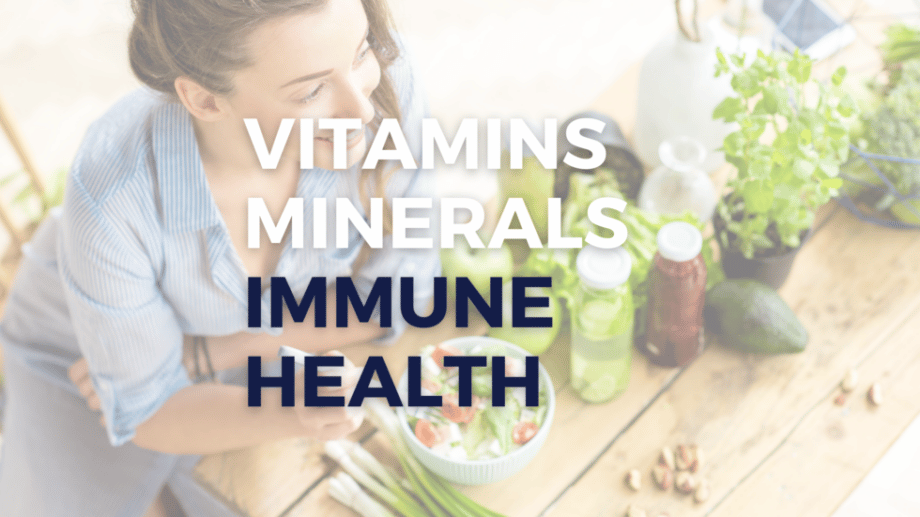You have like heard this saying: food is fuel. Commonplace, but true! Food is—literally—fuel. But why do we say this? Well, food supplies our bodies with essential vitamins and minerals that sustain us. But why how are vitamins and minerals relevant to our immune health? Well, vitamins and minerals provide the foundation, functioning synergistically to support our immune health. But why do we care about fostering immune health? Well, adequate immune health plays an integral role in fostering our holistic health and wellness.
Vitamins & Minerals Involved in Immune Health
Our bodies function on the nutrients we consume. Therefore, intentional consumption matters. Consuming nutrient dense, whole foods supports nutrient sufficiency and subsequent immune health. However, our nutritional needs, food accessibility, and preferences vary.
If you struggle to consume essential nutrients through your diet, consider supplementation! Supplementation exists to close nutrient gaps. If you have concerns about your individual health and wellness needs, please reach out to your healthcare provider.
As you focus on intentionally consuming vitamins and minerals that support your immune health, consider prioritizing the following:
Vitamin A
Vitamin A supports healthy inflammatory responses through its role of supporting immune functions. It supports immunity through its role in epithelial tissue maintenance. Common sources of vitamin A include butternut squash, cantaloupe, carrots, and dark green leafy vegetables.
Vitamin C
Vitamin C offers broad-based value within the body. It protects cells from free radicals and aids in the natural healing process. Common sources of vitamin C include citrus fruits, tomatoes, potatoes and greens. Whole food diets support vitamin sufficiency.
Iron
Iron supports cells in the immune system. It supports immune cells by supporting proliferation, maturation and sustaining function. Common sources of iron include beans, broccoli, chicken, kale and mussels.
Selenium
Selenium supports low oxidative stress in the body and healthy inflammatory responses. It offers broad-based value within our immune systems by regulating and enhancing immune responses. Common sources of selenium include cashews, chicken, lentils, liver, oats and spinach.
Zinc
Zinc supports immune cell production. It plays crucial role in the creation, proliferation and function of immune cells. Zinc offers broad-based value in the development and sustainment of a range of immune cells. Common sources of zinc include beans, chicken, crab, nuts and oysters.
Supplementing allows us to close nutrient gaps. The vitamins and minerals outlined above play essential roles in our immune systems. If you have questions about your personal vitamin and mineral needs—or questions about your immune health—reach out to your healthcare provider!

